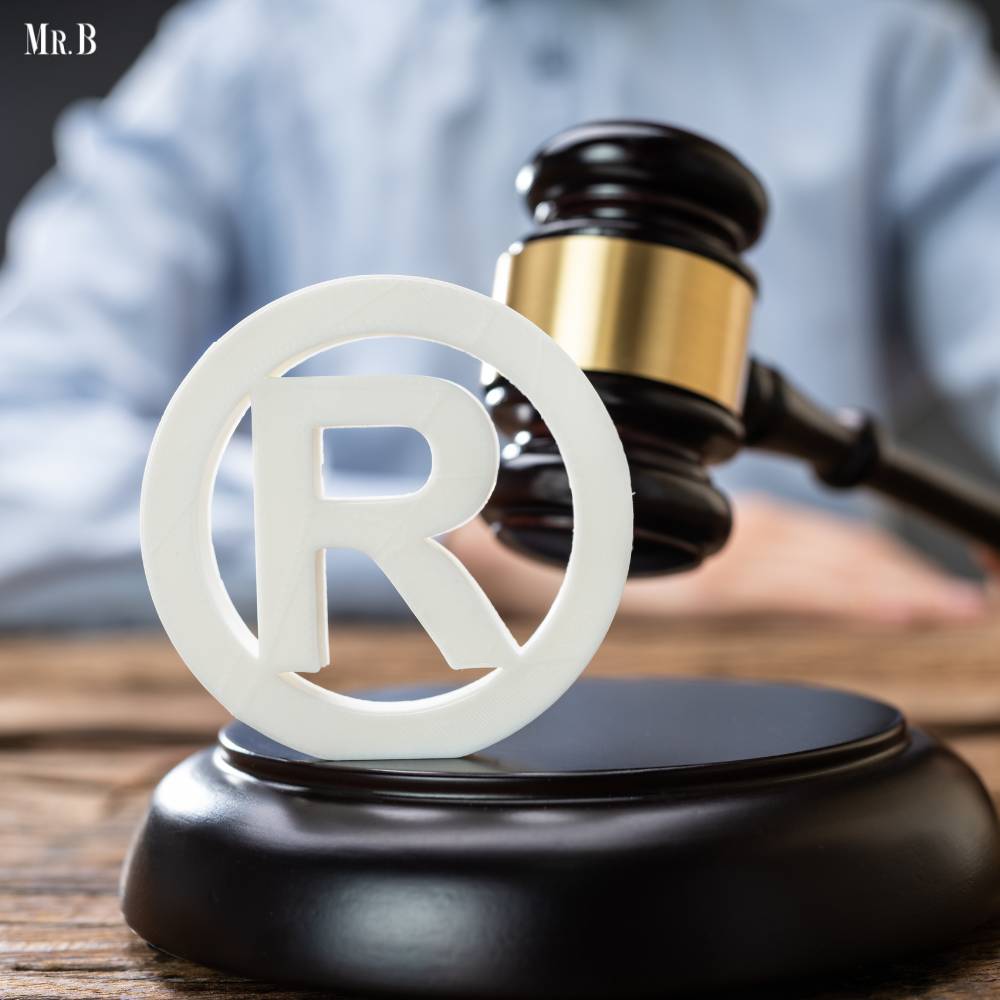In today’s world, startups are the lifeblood of technological and economic advancements. As startups strive to transform ideas into tangible products and services, preserving their intellectual assets becomes vital. This is where the concept of intellectual property (IP) steps in, offering startups the necessary protection and competitive edge to thrive in the market.
In this article, we will delve into why intellectual property is so important for startups, and shed light on the roles that patents, trademarks, and copyrights play in securing innovation and fostering growth.
Understanding IP for Startups
Intellectual property refers to the intangible creations of the human mind that hold economic value. These creations encompass a broad spectrum of innovations, including inventions, artistic works, brand identities, and more. IP rights grant creators exclusive legal rights to their creations, allowing them to control the use and distribution of their work.
The Triad of Intellectual Property: Patents, Trademarks, and Copyrights
1. Patents: Safeguarding Innovations

Patents are a cornerstone of IP protection, particularly for startups driven by innovation. They provide inventors with exclusive rights to their inventions, preventing others from making, using, or selling their patented creations without permission. For startups, obtaining a patent can be a game-changer, as it not only safeguards their innovative concepts but also establishes a strong competitive advantage.
Startups should consider patenting their inventions if they are novel, non-obvious, and have a practical application. The patent process involves a thorough examination of the prior art, technical specifications, and legal requirements. While the patent application process can be complex and time-consuming, the long-term benefits in terms of protection and market positioning make it an invaluable investment.
2. Trademarks: Building Brand Identity
In a crowded marketplace, establishing a distinct brand identity is crucial for startups to stand out and create a lasting impression. Trademarks serve as the foundation for building this identity by protecting unique names, logos, slogans, and symbols associated with a company’s products or services.
Startups should prioritize registering their trademarks to prevent unauthorized use and potential brand dilution. A registered trademark not only provides legal protection but also fosters consumer trust and brand recognition. By securing a strong trademark, startups can establish a strong emotional connection with their target audience and gain a competitive edge in the market.
3. Copyrights: Preserving Creative Works
Startups in the creative industries, such as software development, literature, music, and art, rely on copyrights to safeguard their creative works. Copyrights protect original expressions of ideas in tangible forms, granting creators the exclusive rights to reproduce, distribute, and display their creations.
While copyrights are automatically conferred upon creation, registering them with relevant authorities enhances legal enforcement capabilities and strengthens the startup’s position in cases of infringement. Startups can harness the power of copyrights to protect software codes, literary works, visual arts, and other creative endeavors, establishing a secure foundation for their business growth.
4. The Impact on Funding and Valuation
Intellectual property plays a pivotal role in influencing a startup’s ability to attract funding and increase its valuation. Investors, venture capitalists, and angel investors view a startup’s intellectual property portfolio as a reflection of its innovation, market positioning, and long-term potential. A robust IP portfolio demonstrates the startup’s commitment to protecting its assets and can mitigate potential risks, thus instilling confidence in stakeholders.
Startups armed with well-protected IP are better positioned to negotiate favorable investment terms, secure partnerships, and explore licensing opportunities. Furthermore, IP assets can be leveraged as collateral for securing loans and financing, enabling startups to access capital for growth and expansion.

5. Navigating the IP Landscape: Best Practices for Startups
- Conduct Comprehensive IP Audits: Regularly assess and audit your IP portfolio to identify gaps, potential infringements, and opportunities for expansion.
- Develop a Clear IP Strategy: Align your IP strategy with your business goals and market dynamics. Determine which IP rights are most relevant to your startup’s offerings.
- Seek Professional Guidance: Consult with intellectual property attorneys and experts to ensure an accurate understanding of legal requirements, filings, and enforcement mechanisms.
- Prioritize Early Filings: File for patents, trademarks, and copyrights as early as possible to establish a protective shield around your innovations and brand identity.
- Collaborate and Monitor: Foster a culture of intellectual property awareness within your startup. Educate your team about the importance of IP and continuously monitor the market for potential infringements.
6. The Global Landscape: Navigating Intellectual Property Challenges in a Digital Age
In an interconnected world fueled by technology, startups must navigate complex challenges that transcend geographical boundaries. Here are some of those challenges:
- Cross-Border Protection: With startups reaching audiences across different countries, securing intellectual property protection on an international scale becomes imperative. Startups can explore mechanisms such as the Patent Cooperation Treaty (PCT) for streamlined patent filings across multiple jurisdictions. International trademark registrations, such as those under the Madrid System, facilitate brand protection in various markets, allowing startups to expand without compromising their identity.

- Digital Piracy and Enforcement: The digital era has given rise to challenges like online piracy and counterfeiting. Startups must be vigilant in monitoring the unauthorized use of their IP on digital platforms and social media. Establishing a robust online presence goes beyond marketing – it involves actively policing unauthorized use to protect the integrity of your brand.
- Open Source and Collaboration: The rise of open-source software and collaborative platforms presents unique considerations for startups. While embracing open-source can drive innovation and collaboration, it’s crucial to strike a balance between sharing and protecting proprietary technologies. Startups should clearly define their IP rights when engaging in collaborative ventures to avoid potential disputes down the line.
- Data-Driven Innovations: Startups operating in data-driven domains face intricate challenges related to data ownership, privacy, and protection. The emergence of artificial intelligence and machine learning further complicates the intellectual property landscape. Developing a comprehensive data strategy that addresses ownership, licensing, and compliance is essential to harness the power of data while safeguarding proprietary insights.
- Evolution of IP Laws: Intellectual property laws are continuously evolving to keep pace with technological advancements. Startups need to stay informed about changes in regulations, especially in emerging fields like biotechnology, fintech, and blockchain. Engaging with legal experts who specialize in these areas can help startups navigate the nuances of evolving IP laws.
Summing Up
Intellectual property emerges as a crucial asset for protecting, enhancing, and monetizing innovation. By securing patents, trademarks, and copyrights, startups can establish a formidable competitive advantage, attract funding, and drive growth. Understanding the nuances of intellectual property and implementing effective protection strategies can set the stage for long-term success and sustainability in the startup world.







